FiLiA Presents the Violence, Abuse and Women’s Citizenship Conference of ‘96
The resilience and courage of the International Women’s Rights Movement in the 90s is retold in this unique exhibition retelling the Violence, Abuse and Women’s Citizenship Conference of ‘96. Legendary feminists including Andrea Dworkin, Phylls Chesler, Norma Hotaling, Jalna Hanmer, Sheila Jeffreys, Janice Raymond and Teboho Maitse attended and, for the first time, women from across the world came together to form alliances.Through this exhibition, we explore the global political and social landscape of the 90s that led to the demand for this phenomenal event.
Episodes
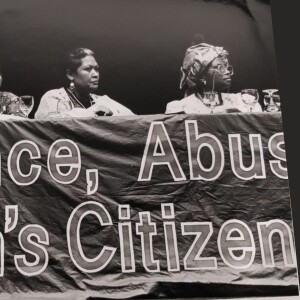
Tuesday Sep 19, 2023
Tuesday Sep 19, 2023
"We have the right to full citizenship. We have the right to life, security of the person, to equal benefit and protection of the law."
"Those with the power to investigate, to prosecute, to adjudicate the crimes of violence perpetrated by men have done so, so often, through the filter of ignorance and compounded by the filters of bias, of gender and race and class bias, of heterosexism and bias against those with disabilities."
"Women and children in Canada have paid a terrible price for the priority given in our country to the prevention of property crime. Guess whose priority that was."
"Imagine how different life could be, it certainly would be in our country, if hiring criteria and appointments criteria for hiring police or appointing judges included demonstrated understanding of equality issues and demonstrated understanding of the dynamics of violence."
Patricia Freeman Marshall is the author of the Changing the landscape: ending violence, achieving equality report for the Canadian Panel on Violence against Women, of which she was appointed co-chair in 1991.

Tuesday Sep 19, 2023
Tuesday Sep 19, 2023
Quotes:
“We need to understand the reality for women on the ground, in the world, in real life, and our advocacy of social policy and legal reform has to be based on the experiences of real women.”
“She left. She's not coming back. How do you own her? You kill her.”
“We may not accept the social situation the way that it is. We cannot accept the legal system the way that it is. We have to put ourselves in the centre of the world… Every time we look at the legal system and social policy, we have to put a woman in the centre of it and say, “what happens to her?””
“The first thing that we have to do is to refuse to accept the premises that we have been given to start with. And that's what I came here to ask you to do.”
Andrea was internationally renowned as a radical feminist activist and author who helped break the silence around violence against women. She is co-author of the pioneering Minneapolis and Indianapolis ordinances in the early 1980's that define pornography as a civil-rights violation against women. She is the author of 12 books of fiction, non-fiction and poetry and has contributed to many anthologies, periodicals, media events and has spoken at activist demonstrations, universities and in cities in many countries. Her critique of pornography and violence against women began with Woman Hating in 1974. This was followed, amongst other books, by Pornography: Men Possessing Women in 1981. This book tells us what pornography actually does and explores the relationship between pornography and women’s civil status.
Updated to include Dworkin's answers to inaudible audience questions, on the topic of women who kill their abusers.
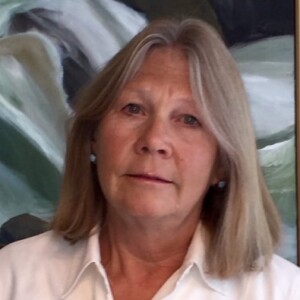
Tuesday Sep 19, 2023
Tuesday Sep 19, 2023
"If you're raped by a stranger, you live with a frightening memory. When you're raped by your husband, you live with your rapist."
"I just think that when we recognize and speak out about wife rape, we need to think of the implications for all of the different institutions and contexts in which we work.Because I think all of them are lacking in their response to wife rape."
"I think most women are unaware that these kinds of assaults are illegal."
"Every chance that we get to break the silence around sexual violence in marriage and think about it and talk about it together and plan ways to address it is very welcome."
From 1996:
"WIFE RAPE
This workshop will offer an overview of research on wife rape, including rates of rape in marriage in the US, legal issues, forms of marital rape, and consequences for victims. The workshop will focus on the silence surrounding sexual violence in marriage. This is a problem that remains hidden even in the battered women’s and rape crisis movements. It is, however, coming to the attention of international AIDS workers who are discovering that education about safer sex is of limited value for wives who cannot refuse their husbands. Discussion will focus on increasing awareness of this pervasive form of rape and on developing activist responses.
Kersti Yllo is Professor of Sociology at Wheaton College in Norton, Massachusetts, USA. She received her PhD from the University of New Hampshire where she was a Research Associate with the Family Violence Research Program. Her research has focused on domestic violence and marital rape and she has published numerous articles and books including License to Rape: Sexual Abuse of Wives and Feminist Perspectives on Wife Abuse."
Kersti Yllo has continued her work on the issue of marital rape, including two recent books, Sexual Violence in Intimacy and Marital Rape: Consent, Marriage and Social Change in Global Perspective.

Tuesday Sep 19, 2023
Tuesday Sep 19, 2023
From 1996:
"SEXUAL VIOLENCE IN ITALY: IS THE GEOGRAPHIC/CULTURAL CONTEXT RELEVANT?
Sexual violence in Italy is a phenomenon which has only recently become a social issue. The most important characteristic is that it is strictly related to the geographic/cultural context. Not only does the rate of reported sexual violence differ at a regional level, but also the kind of violence, the characteristics of victims and aggressors, and the places and circumstances where the violence takes place.
The data I will present are part of a wider research project. I will illustrate the characteristics of the violence reported to the police in three big Italian cities (Milan, Venice and Naples) in 1988. Besides some common traits, such as the high incidence of sexual abuse within the family (incest), the three towns show characteristics of their own. In Milan the rate of ‘stranger rape’ is higher. In Venice the rate of sexual assault committed against tourists is considerable. In Naples the incidence is still high (although much higher in the past) of a fiance being brought to court for having had sexual intercourse with a girl he refused to marry. Further research will illuminate other important differences and characteristics of sexual violence in the Italian context.
Laura Terragni studied sociology at the University of Milan, got her PhD in Trento and is currently working as an assistant at the University of Padova. She has studied violence against women, domestic violence and sexual violence for many years. She has published articles in Italian journals and is now publishing a book on sexual violence in Italy. She holds seminars for activists and is involved in the Sexual Violence Centre recently opened in Milan. She is promoting the first Italian academic forum on violence against women."
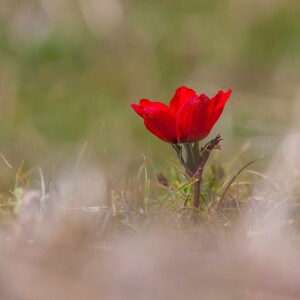
Tuesday Sep 19, 2023
Tuesday Sep 19, 2023
“Light sentences in sexual offenses, cases like rape, sexual assault, or harassment, not only trivialise the experience of the individual victims, but also carry the wider implication that female sexual victimisation is unimportant. It is essential to raise mass consciousness for the general public… In my view, effective public opinion will be the most formidable weapon against rape in society.”
Abstract for Rehana's Speech:
Rape has often been described as the primary instrument of control in a patriarchal society. Rape is a vicious and sadistic manifestation of the general nature of sexuality in a male- dominated society. In most countries rape is defined by statute or by common law as sexual intercourse without the consent of or against the will of the woman. Women’s vulnerability to rape is one of the main factors which prevent their empowerment and their enjoyment of equality with men. Every state has an international legal obligation to investigate, prosecute and punish rapists. The police are often insensitive to issues concerning rape, and suspicious of complaints of rape.
Recently for the first time in Bangladesh an information centre consisting of only women police officers has been set up in the capital, Dhaka, to take the necessary action on behalf of women who are victims of violence, rape and trafficking. The Bangladesh National Women’s Lawyers Association has been providing legal support to victims of rape in judicial proceedings both before court and outside of court. It is very difficult to prove an offence of rape at trial, and current court proceedings can exacerbate the complainant’s ordeal during trial. Rehana Sultana joined the Dhaka Bar as an advocate in 1985 and the High Court Division of Bangladesh Supreme Court in 1987. She practices as an Advocate and works as a human rights activist as a member of the Bangladesh National Women’s Lawyers Association.

Tuesday Sep 19, 2023
Tuesday Sep 19, 2023
“Gender is the relative status of man and woman in a given society. It is culture-specific and the gender roles ascribed to man and woman in our society are coloured by attitudinal predisposition. This social psyche, developed over a long period, has led to the exploitation of women. gender is the relative status of man and woman in a given society. It is culture-specific and the gender roles ascribed to man and woman in our society are coloured by attitudinal predisposition. This social psyche, developed over a long period, has led to the exploitation of women.”
“The oppression of women within the family structure is invisible, because it takes place within the four walls of the home, and it is treated as family or a private matter. The denial of the rights of women within the family is because the problems of women within the family get personalised. Thereby, women are forced to fight their battles within the domestic sphere all alone. This individualisation of social problem is a part of the social values that govern our society.”
From 1996:
"The Spectrum Of Violence Against Women: An Obstacle To Survival And Empowerment – Keynote Address
In this presentation I will outline the general situation of women in Indian society, focusing on education, health, economics, and crimes against women. I will describe some of the forms of violence against women commonly found in India, e.g., wife beating, female infanticide, dowry deaths, sati, sexual harassment, and prostitution, and will examine social structures which give rise to violence. I will then highlight responses of the state; legislative, executive, and judicial.
In the second part of my presentation I will propose measures to prevent violence against women in India; for example, consciousness raising programmes and government economic development programmes, protective measures, especially law reform and reform of state institutions such as the police, and provisional measures particularly directed at increasing women's participation in decision-making processes and monitoring state actions.
Aruna has worked in the area of support at the Centre for nine years, and is a campaigner and activist, as well as being responsible for dealing with the media. The areas she is interested in publicising are those concerning women, communalism, and other social issues. Aruna’s main research is on state responses to violence."
Please be aware this recording ends abruptly, and the remainder is lost.
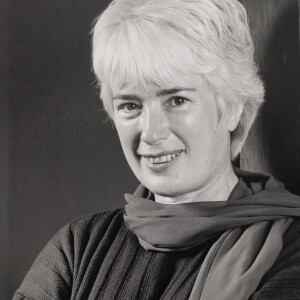
Tuesday Sep 19, 2023
Tuesday Sep 19, 2023
“We're casting our nets widely this week in this meeting. Not only to reaffirm the work that we have been doing in our different countries and cultures, to get support to go back and to do more, but to launch a proactive as opposed to a reactive movement.”
“It seems sometimes to us unimaginable to accomplish the things that we propose. But there have been no real gains in this world unless we think the unimaginable. And then actually start to believe that we can do it.”
The exploitation of sexuality underlies the political and economic subordination of women through colonisation of women's bodies and expropriation of their selves. While sexual exploitation permeates most forms of violence against women, it is a political condition of sexism that is not confined to acts of force and victims. Research and policy that confines work on violence against women only to that which violates women's consent cannot address the underlying social, cultural, and economic conditions which promote sexual exploitation, reducing it to its individual occurrences.
Prostitution, an institution and industry of sexual exploitation. has dramatically expanded globally in the last decade. While there is a commonality that unites women in the struggle against sexual exploitation globally, it is also shaped by the differing practices and economics of each world region and the impact of the global economy. This is explored through tracing the personal consequences of sexual exploitation for the political and economic subordination of women from trafficking to sex industrialisation to the normalisation of prostitution, or "the prostitution of sexuality," or legitimised exploitation.
Kathleen is Professor of Sociology at Pennsylvania State University. She co-founded the United Nations Non-Governmental Organisation ‘The Coalition Against Trafficking in Women’. Her publications include The Prostitution of Sexuality: Global Exploitation of Women (1995), which presents a new global analysis, feminist theory and international legal approaches to sexual exploitation. She lectures widely in the US and abroad on women’s rights and international feminism.
Listen to FiLiA's interview with Kathleen in 2020 on the FiLiA Podcast.
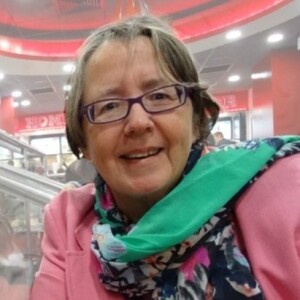
Tuesday Sep 19, 2023
Tuesday Sep 19, 2023
“I'm going to light my candle again. They say that it is better to light a candle than to curse the darkness. Well, I have cursed the darkness… and it is very dark, but I have lit the candle. And I ask all of you to go out and light the candles, and work really hard, because there is a lot of work to be done.”
From 1996:
"From The Cradle To The Grave: Sexual Abuse And Violence Against Disabled Women And Children – Keynote Address
In this presentation I will give an overview of sexual abuse and violence in the lives of disabled children and adults. Such abuse and violence can occur anytime from cradle to grave, and must be viewed within a context of societal attitudes which oppress disabled people, especially women and children.
Margaret has developed pioneering work in issues of disability and child protection. She is co-editor of The ABCD Pack: Abuse and Children who are Disabled. She chaired the Disability and Abuse Working Party of the British Association for the Study and Prevention of Child Abuse and Neglect, and is a co-opted member of BASPCAN’s National Executive Committee. She has also established ‘Christian Survivors of Sexual Abuse’ (CSSA) to challenge churches on their treatment of survivors, runs self-help groups and edits a journal on Christianity and abuse."
Margaret Kennedy is an Irish feminist, social justice & disability activist, and former social work lecturer. She is the founder of Minister and Clergy Sexual Abuse Survivors (MACSAS), and author of The Courage to Tell.
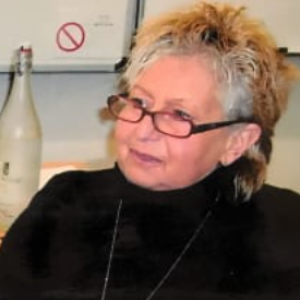
Tuesday Sep 19, 2023
Tuesday Sep 19, 2023
“We need to just take a few seconds to try and harness the power that we bring into this room. All of us here, saying, “enough is enough,” from all over the world, wherever we've come from, wherever we live, wherever we are, we're saying, “no more.” We're here, whether we're on the platform, in the hall, or on the street. We're all of us experts. We're here to share, to network, to build bridges across the political turbulence of nation states. And we're pretty privileged to be here together. We're privileged to be here at all. And I guess as we work our way through the week, we must keep with us thoughts of hundreds, of thousands, of millions of women who haven't made it, who've lost their lives, or imprisoned, because violence and abuse against women isn't a crime, it's just a fact.”
“What we have, is woman power.”
Sheila Saunders was an Honorary Fellow of the Violence, Abuse and Gender Relations research Unit, University of Bradford. She was also Chief Executive of the Leeds Jewish Welfare Board/Leeds Jewish Housing Association.
Sheila died in 2013. Read her obituary in the Yorkshire Post.
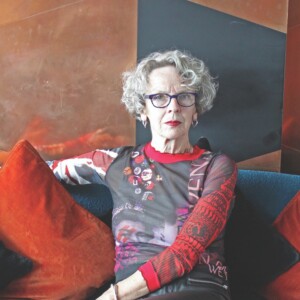
Sunday Oct 01, 2023
Sunday Oct 01, 2023
"What the judicial inquiry was supposed to ask itself was not “what's happened here, what might be happening to these children.” But, “how have professionals responded to this blankety blank, this thing that has no name that we are not allowed to think about?”"
"We will spend a fortune finding out what ‘blank’ didn't happen. What has not happened. What we are not allowed to know."
"That's the voice of the adult survivor. She, of course, is not a new voice. She's an old voice. She's been trying for a millennium to tell her story."
Abstract:
The last decade can be characterised as a decade of discovery and demise. This session will map the volatile politics of child protection since 1987 and the Cleveland crisis.
Beatrix is a writer, journalist and activist. Her books include Goliath, Iron Ladies and Wigan Pier Revisited as well as Unofficial Secrets, a book on the child abuse controversy in Cleveland, UK. She writes regularly for The New Statesman, The Guardian, The Scotsman and others, and is a regular guest on many television programmes. Beatrix has also conducted research around the satanic ritual abuse of children.
Since 1996:
Beatrix has continued her journalism and activism, receiving an OBE in recognition of her work in 2009. She has written several books, the most recent of which, ‘Secrets and Silence’, revisits the Cleveland Case discussed in this recording.
